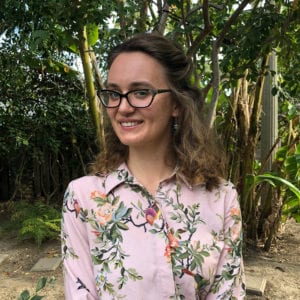Zimbabwe’s all-female anti-poaching team is helping to improve the economy by empowering women and protecting wildlife.
Poaching has taken a severe toll on the elephant population of Zimbabwe. By 2017, numbers in the Lower Zambezi region had declined by 40 percent since 2001. According to the African Wildlife Foundation (AWF) as many as 35,000 elephants are killed in Africa each year. If this rate continues, African elephants (along with other vulnerable species such as Black Rhinos, Lions, and Mountain Gorillas) may become extinct within our lifetime.

Illegal trophy hunting and poaching has become such a large part of Africa’s economy that there has become little incentive to promote conservation. Without alternate sources of income, poaching will continue to destroy the rich biodiversity of the continents ecosystem.

Enter the Akashinga, “The Brave Ones,” a branch of the International Anti-Poaching Foundation with a new approach to protecting Africa’s wildlife — employing only marginalized women from rural communities. Single mothers, abandoned wives, survivors of sexual and physical abuse, widows, and orphaned girls are trained as rangers and biodiversity managers. They now protect the vast tracts of land previously ruled by poachers. Their business model gives the most vulnerable women an opportunity to become empowered by earning a living, while protecting wildlife.

Training to become an Akashinga ranger is rigorous and grueling. The women must be prepared to face the harshest conditions, and heavily-armed poachers. But the wet, cold, and hunger isn’t something that intimidates them — the hellish conditions they face aren’t any worse than the conditions they already endured as marginalized members of their community. Troubled backgrounds make the Akashinga rangers particularly adept at their job.

Over 60 percent of Akashinga’s operational costs go directly back to local communities, and up to 80 percent of this goes directly to households. It’s a more profitable and longterm, sustainable income for the community than the short-term financial returns of poaching. Akashinga yields the same profit in 34 days than trophy hunting yields in a year, with the added benefit of simultaneously promoting conservation. It demonstrates that endangered wildlife are more valuable to the Zambezi Ecosystem alive than dead, and provides an incentive to promote conservation.

The success of Akashinga’s business model is proof that empowering women in the workforce leads to economic growth. According to the UN, closing the gender gap in the workplace is a key component to achieving the 17 Sustainable Development Goals.

Akashinga plans to expand its conservation work. By 2025, they intend to recruit 1,000 women to protect a network of 20 former hunting reserves — securing a future for the species that live there, creating better lives for their communities, and inspiring people around the world to take action in bettering our world. These women prove each day that taking action can have an immediate, positive effect.

Click here to make a donation to the IAPF and Akashinga project
Photographs courtesy of Adrian Steirn.




































